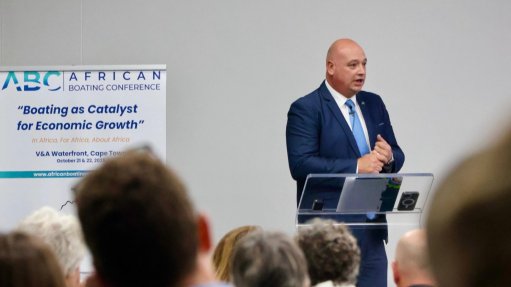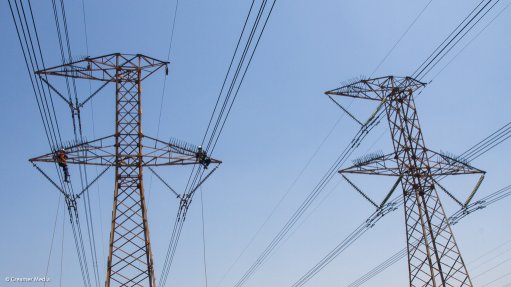Association claims ‘something is rotten’ in construction sector as five of its long-standing members fold
The Master Builders Association (MBA) North reports that five of its long-standing members went out of business during the course of last year.
The association’s executive director, Mohau Mphomela, says that these bankruptcies, which have resulted in significant job losses, indicate the severe headwinds the industry is currently facing.
The companies in liquidation or business rescue are Belo & Kies, GD Irons, Iguana, Giuricich Bros and Bartlett Construction.
“When established, stable businesses with good track records close their doors, you know there is something rotten in an industry,” says Mphomela.
“The MBA North has been raising certain issues over the course of many years, and we are now calling for all stakeholders to come together to resolve these issues.
“We all know that the country desperately needs a major infrastructure renewal programme, and government has committed the funds, but if we lose our large contractors, we simply won’t be able to meet demand.”
Mphomela highlights three issues that must be addressed urgently.
The first is amendments to Joint Building Contracts Committee (JBCC) contracts.
The JBCC, a nonprofit organisation representing building owners and developers, built- environment professional consultants, as well as general and specialist contractors, created a set of building contract blueprints some 20 years ago.
The JBCC contracts were drafted to ensure that every role-player was treated fairly, and are used in the vast majority of projects, explains Mphomela.
However, it has become increasingly common for developers or their agents to insist on varying the terms of the contract to protect themselves, thus putting contractors at risk, he notes.
Gothic Construction contracts director Wayne Albertyn says that any alterations should be made using the same consultative process that gave rise to the contracts in the first place.
“If one party unilaterally changes the contract, there is a clear conflict of interest, and we appeal to all stakeholders not to continue this practice, which puts contractors at a massive disadvantage.
“If the contract does need to be changed, then an ombud needs to oversee it, or the MBA could play that role. JBCC contracts are the gold standard.”
The second issue to be addressed is the ceding of the contractor’s lien on the building.
The JBCC contract makes provision for the contractor to have a lien over the building to protect against nonpayment or short payment.
A common contract alteration is for the developer or its agents, such as the quantity surveyor or architect, to strike out this clause.
Apart from leaving the contractor exposed, it means that the contractor finds it ruinously expensive to get a payment guarantee from the banks as it does not have collateral – banks typically demand 200% collateral to provide a payment guarantee.
Tri-Star Construction MD Derek Wheals says that all this is putting contractors at significant risk.
He proposes that banks agree to provide a payment guarantee that reduces in line with the payments made to the contractor by the client, thus ensuring that the bank is never overexposed.
The third issue to be addressed is the issuing of zero certificates at the practical or final completion stages of a contract, explains the MBA North.
In this way, the contractor is forced to go to the courts to get the final payment, greatly affecting cash flow.
In summary, says Mphomela, the MBA North is urging all the stakeholders in the construction industry to come to the table to discuss these and other issues, in order to arrive at mutually satisfactory solutions.
“The construction industry is one of the backbones of any economy, and ours has been eroding at a frightening rate.
“Part of the problem is that margins are so thin and jobs still so scarce that stakeholders seem to have forgotten that, in the final analysis, they exist in an ecosystem, and depend on each other to survive,” he says.
“We came together to create the JBCC contracts, and we now need the same spirit to solve our current challenges.”
Article Enquiry
Email Article
Save Article
To advertise email advertising@creamermedia.co.za or click here
Comments
Announcements
What's On
Subscribe to improve your user experience...
Option 1 (equivalent of R125 a month):
Receive a weekly copy of Creamer Media's Engineering News & Mining Weekly magazine
(print copy for those in South Africa and e-magazine for those outside of South Africa)
Receive daily email newsletters
Access to full search results
Access archive of magazine back copies
Access to Projects in Progress
Access to ONE Research Report of your choice in PDF format
Option 2 (equivalent of R375 a month):
All benefits from Option 1
PLUS
Access to Creamer Media's Research Channel Africa for ALL Research Reports, in PDF format, on various industrial and mining sectors
including Electricity; Water; Energy Transition; Hydrogen; Roads, Rail and Ports; Coal; Gold; Platinum; Battery Metals; etc.
Already a subscriber?
Forgotten your password?
Receive weekly copy of Creamer Media's Engineering News & Mining Weekly magazine (print copy for those in South Africa and e-magazine for those outside of South Africa)
➕
Recieve daily email newsletters
➕
Access to full search results
➕
Access archive of magazine back copies
➕
Access to Projects in Progress
➕
Access to ONE Research Report of your choice in PDF format
RESEARCH CHANNEL AFRICA
R4500 (equivalent of R375 a month)
SUBSCRIBEAll benefits from Option 1
➕
Access to Creamer Media's Research Channel Africa for ALL Research Reports on various industrial and mining sectors, in PDF format, including on:
Electricity
➕
Water
➕
Energy Transition
➕
Hydrogen
➕
Roads, Rail and Ports
➕
Coal
➕
Gold
➕
Platinum
➕
Battery Metals
➕
etc.
Receive all benefits from Option 1 or Option 2 delivered to numerous people at your company
➕
Multiple User names and Passwords for simultaneous log-ins
➕
Intranet integration access to all in your organisation


















